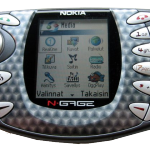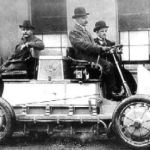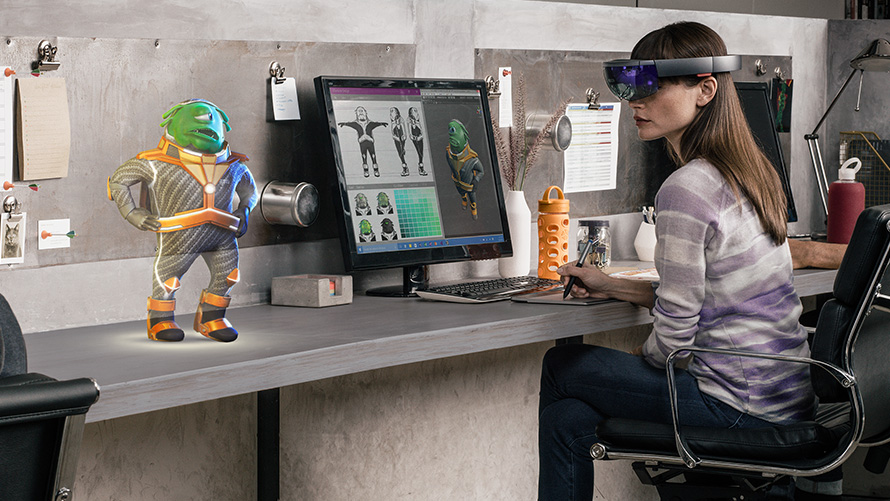A hybrid car built by Ferdinand Porsche in the 1900s, the Nokia N-Gage, and the precursor to Facebook are just some of the great business ideas born too early.
Just because a business fails doesn’t mean it was a bad idea. Often, a business concept is so good it just happens to be years ahead of its time. The world just isn’t ready for it yet. Here we look at eight great business ideas that came too early for their own good.
Sixdegrees.com
Founded in 1997 when Mark Zuckerberg was just starting high school, Sixdegrees.com was the world’s first social networking site, allowing users to add connections, send instant messages and post news on bulletin boards. While Zuckerberg would turn the concept into a multi-billion dollar business the following decade with Facebook, in the late 90s Sixdegrees.com was just a little bit ahead of its time. Despite the strong initial growth, web adverting was still underdeveloped, and the site’s revenue problems resulted in its closure in 2001.
If you are starting or growing a business you can download this brilliant business plan template.
Alta Vista
Launched in 1995, three years before Google, Alta Vista was one of the earliest attempts to turn an Internet search engine into a money making enterprise. It quickly became a market leader, with technological innovations that put its engine ahead of its competitors, and it even became the first big company to offer free email. But, like so many web companies of its generation, it couldn’t figure out how to make money, and it was bought out by Yahoo! in 2003.
Sign up: Monthly business inspiration and great new ideas. The ThinkBusiness bulletin.
N-Gage
Today gaming on smartphones is standard practice, but before the N-Gage was launched by Nokia (remember it?), game consoles and phones were very much separate entities. Launched in 2003, the N-Gage attempted to take on the Game Boy Advance, marrying the ideas of handheld gaming and mobile phone capabilities for the first time. It was an original idea, but alas it didn’t work. Priced too high, it was still cheaper for people to buy a Game Boy and separate mobile phone than to buy the N-Gage, and that’s what consumers did. A poor user experience didn’t help, and the device was discontinued in 2005.
Concorde
Considered one of the great technological leaps of the 20th Century, the Concorde travelled at twice the speed of sound, allowing passengers to cut travel times in half. London to New York could be done in a mere three and a half hours, eliminating jet lag and making day-trips between the continents common for some business people. There was just one problem; it wasn’t cost effective. Heavily subsidised by the French and British governments from the start, the Concorde ran at a loss for its first six years before a fare restructure, where a $10k round trip ticket from JFK to Heathrow was considered a good deal. The project was not financially sustainable, and the final nails were put in its coffin by the tragic Air France Concorde crash in 2000 and the terror attacks of September 11th the following year.
Napster
As natural as it seems today, sharing music online was once a revolutionary concept, and in the late 90s, Napster was the pioneer in this space. While allowing people to share MP3 files with each other for free, the site quickly raised the ire of the music industry and lawsuits followed. Forced to monetise to pay its debts, Napster moved to a subscription based model. While today Spotify has turned the same idea into a massive money spinner, at the time the world wasn’t ready, and Napster ultimately failed in 2001.
Webvan.com
Webvan predicted that there would be a huge consumer demand for home delivery of groceries bought online. Launched in 1999, the company spent $1 billion on warehouses, trucks and computers, but the demand wasn’t sufficient, and Webvan went bust just a couple of years later. Home delivery of goods bought online is today big business of course, and Webvan is just a classic example of a good idea that was tried too soon.
WebTV
WebTV was a box about the size of a VCR that connected to a TV to give Internet access without having to buy a PC. Started in 1995, it was an innovative idea that was bought by Microsoft and rebranded as MSN TV two years later. While today its functions are commonplace through devices like the Xbox 360 and Smart TVs, WebTV/MSN TV sadly faded away into obscurity before being discontinued. There just wasn’t a consumer demand at the time to go online using TVs. Imagine. Imagine the world without Netflix?
Lohner-Porsche
One of the great ‘before its time’ inventions. Designed by the founder of the Porsche car company, Ferdinand Porsche, the Lohner-Porsche was the world’s first hybrid car. Developed in Austria in the early 1900s, the Lohner-Porsche line included hybrid and entirely electric vehicles, boasting innovative features and reliable performance. Unfortunately, costs were higher than conventional petrol engine cars and production was ceased in 1906. It would take another 100 years for hybrid and electric cars to take off. Elon Musk is standing on the shoulders of an early 20th Century giant.
Article by Peter Flanagan. ⊕














